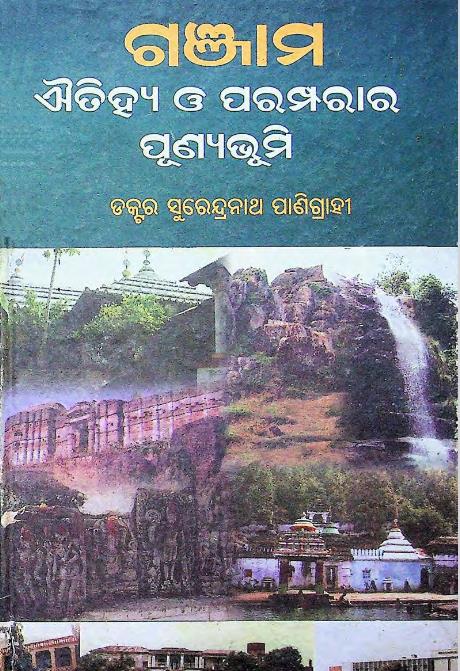In the rich tapestry of Odisha’s literary and historical landscape, Ganjam – Aitihya o Paramparar Punyabhumi by Surendranath Panigrahi stands out as an evocative exploration of Ganjam’s heritage. Published in 2012, this essay not only delves into the historical significance of the Ganjam district but also illuminates the anxieties and triumphs of its people, weaving personal narratives with broader narratives of cultural and historical importance.
Surendranath Panigrahi, a devoted chronicler of Odisha’s heritage, brings to light the multifaceted dimensions of Ganjam—its traditions, myths, and the spirit of resilience that defines its inhabitants. The essay is a rich collection of anecdotes, historical accounts, and reflections that together construct a vivid picture of Ganjam as a land steeped in culture and lore. It serves as a tribute to its legacy as a punyabhumi (holy land), where countless educational, cultural, and spiritual movements have flourished.
Panigrahi meticulously articulates the importance of Ganjam’s historical sites, temples, and monuments, highlighting how they reflect the artistic and architectural prowess of Odisha. The essays delve into the many temples that dot the region, such as the renowned Khambeswar and the ancient sites that speak of the area’s extensive history in the realms of art and architecture. This exploration is important not only for the local community but for all who seek to understand Odisha’s vast cultural landscape.
A significant aspect of the book is Panigrahi’s focus on storytelling. He adeptly combines oral histories with documented research, revealing how deeply intertwined tradition and modern living are in Ganjam. This narrative style engages readers, drawing them into the lives and experiences of the people, thereby fostering a sense of connection with the region’s cultural heritage. The author effectively encapsulates the souls of the people of Ganjam, their struggles, festivities, and the gradual changes they embrace while holding steadfast to their roots.
Moreover, the essay reflects on the sociopolitical shifts in Ganjam over the decades. Panigrahi does not shy away from discussing the impact of colonial rule and subsequent developments in contemporary Odisha on Ganjam’s identity. His insights into how historical events have shaped local traditions and community structures are both enlightening and thought-provoking. It encourages a re-examination of the past to understand the present and future of this unique region.
In conclusion, Ganjam – Aitihya o Paramparar Punyabhumi is not merely a historical account but a heartfelt homage to the soul of Ganjam. Surendranath Panigrahi’s passionate prose invites readers to explore Lesser-known tales that echo through the valleys of time, making this book an invaluable resource for scholars, students, and anyone interested in the rich heritage of Odisha. The work serves as a reminder of the profound connection between identity, place, and history, urging readers to appreciate and preserve the rich cultural tapestry that Ganjam represents. This essay is a significant contribution to Odia literature, urging us to celebrate our heritage while looking toward the future with hope and understanding.
Books Info
| Books name | Ganjam – Aitihya o Paramparar Punyabhumi/ଗଞ୍ଜାମ ଐତିହ୍ୟ ଓ ପରମ୍ପରାର ପୂଣ୍ୟଭୂମି |
| Author | Surendranath Panigrahi |
| No Of pages | 142 |
| Publisher | Satyanarayana Book Store |
| Publication | 2012 |
| Printed At | Kalia Printers |
| Distributor | NA |

